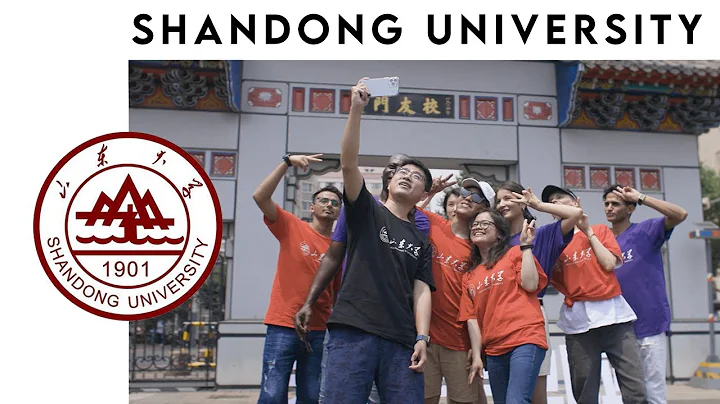
Shandong University Institute of Advanced Confucianism

The institute spans 4 first-level disciplines and 10 second-level disciplines of Chinese, history, philosophy, and sociology. It currently has Chinese classical philology and Chinese folk literature 2 independent doctoral programs , together with other departments, established 8 doctoral programs in ancient Chinese literature, Chinese language and philology , historical theory and history of history, specialized history, modern Chinese history, foreign philosophy, Chinese philosophy, and philosophy of science and technology, and jointly established 8 doctoral programs in philosophy, There are three first-level postdoctoral mobile stations in literature and history; there are foreign philosophy, Chinese philosophy, philosophy of science and technology, folklore , Chinese folk literature, literature and art, Chinese language and philology, Chinese classical philology, ancient Chinese literature, and history. There are 12 master's degree programs in theoretical and historiographic history, specialized history, and modern and contemporary Chinese history. Chinese Classical Philology has been approved as a key discipline in Shandong Province and a key (cultivation) discipline in the country. The Institute of Folklore has been approved as an intangible cultural heritage research base in Shandong Province and has become a Chinese festival culture research base by the Ministry of Culture. The library and reference room of the hospital currently has a collection of more than 100,000 volumes. There are more than 10,000 volumes of thread-bound ancient books, most of which were printed in the Ming and Qing Dynasties. Among them, "Revised and Combined Pentameters and Four Tones" engraved by the government in the 10th year of Chenghua in the Ming Dynasty is an artifact of the "Wenyuan Pavilion" in the Ming Dynasty, and "Dazheng Newly Revised Tripitaka" was hand-authored by Dai Jitao, both of which are precious classics.
Research Institute has an excellent teaching staff, with 60 current faculty members, including 28 professors, 13 associate professors, 8 lecturers, 7 managers, and 4 library and information personnel. There is also one American teacher and one Japanese teacher. There are currently 17 doctoral supervisors, and teachers with doctorate degrees account for more than 80% of the total number of teachers. Professor Wang Xuedian and Professor Zheng Jiewen were appointed as Shandong Provincial Literature and History Research Librarians, and Professor Ma Laiping was appointed as counselor of the Shandong Provincial Government. Professor Du Zexun was selected as the Yangtze River Scholar Distinguished Professor of the Ministry of Education in 2012. Professor Du Zexun and Professor Zhang Shishan were selected into the New Century Excellent Talents Support Program of the Ministry of Education. It has trained more than 200 doctoral students and more than 400 master's students. One doctor won the National Hundred Outstanding Doctoral Thesis Award, and one doctor won the National Outstanding Doctoral Thesis Nomination Award. There are more than 230 master's and doctoral students studying in More than 40 people are postdoctoral fellows.
College of Northeast Asia at Shandong University

College of Northeast Asia at Shandong University is located in Weihai, a beautiful and livable city. It is one of the key construction units of Shandong University. Since 2017, Northeast Asian Studies has been selected into the "Shandong University Peak Discipline Construction Plan" and has become a global Emerging interdisciplinary subjects in the discipline system of first-class university construction. The College of Northeast Asia has three teaching departments: the Department of Korea and Korea, the Department of Japan, and the Department of International Politics and Economics. It also has the Northeast Asia Research Center (recorded by the Ministry of Education), the Korean Peninsula Research Institute (recorded by the Ministry of Education), and the History and Literature Research Center. Research institutions and academic platforms such as the Center, the China-Japan-Korea Think Tank Research Base (Think Tank Alliance of the Ministry of Foreign Affairs), and the Northeast Asia Research Association of the China Asia-Pacific Society. Northeast Asia College has bachelor's, master's and doctoral degree programs in international politics and foreign languages and literature, and has a postdoctoral research station. It also has a master's degree program in world history. At present, Shandong University Northeast Asia College is a teaching and research institution with a complete training system for bachelor's, master's, doctoral, postdoctoral, and international students. In March 2019, the Institute of International Studies of Shandong University was established. The director is Zhang Yunling, a member of the Chinese Academy of Social Sciences, a distinguished first-level professor of Shandong University, and the director of the Academic Committee of the College of Northeast Asia. It is affiliated with the College of Northeast Asia to provide support for the development and development of the college. Ascension provides a larger platform. Northeast Asia College provides a greater platform for the development and improvement of the college.
Wuhan University Chinese Traditional Culture Research Center

is located in the national key research base of humanities at Wuhan University. Its predecessor was the Institute of Chinese Culture of Wuhan University and was established in April 1996.The center is an interdisciplinary research institution on Chinese culture, involving history, philosophy, literature and other disciplines. It has institutions such as the Chinese Social Change and Cultural Transformation Research Office, the Chinese Thought and Culture Research Office, the Chu Culture and Chu Di Unearthed Documents Research Office, etc. , publishes the annual magazine "Humanities Discussion Series". It leverages the traditional advantages of Wuhan University’s literature, history, philosophy, foreign languages, and library disciplines, and has long been academically interpenetrated, forming an academic exchange and collaborative relationship centered on the study of traditional Chinese culture. And it has formed advantages and characteristics in the research fields of traditional Chinese philosophy, Chu culture, Ming and Qing culture, and Ming and Qing social economy. The current director of the center is Professor Feng Tianyu, a well-known cultural history expert. The center is an interdisciplinary research institution on Chinese culture, involving history, philosophy, literature and other disciplines. It consists of the Chinese Social Change and Cultural Transformation Research Office, the Chinese Ideology and Culture Research Office, the Chu Culture and Chu Land Unearthed Documents Research Office, and other institutions. There is a collection of "Humanities Essays". The center is based on doctoral programs in first-level disciplines such as history (especially the doctoral program in ancient Chinese history), Chinese philosophy, Chinese language and philology, and modern and contemporary Chinese literature, and cultivates senior professionals in Chinese cultural studies. The "Humanities Theory Series" sponsored by our center (four volumes have been published so far) mainly reflects the research results of Chinese traditional culture, and is unique in the study of Chinese humanistic spirit and Chinese cultural transformation. It has gained great popularity in domestic and foreign academic circles. Enjoy a certain reputation and have a certain influence.
The Taiwan Research Institute of Xiamen University

The Taiwan Research Institute of Xiamen University was formerly known as the Taiwan Research Institute of Xiamen University. It was established on July 9, 1980. It was the earliest publicly established academic institution for Taiwan studies at home and abroad. Comrade Deng Yingchao, leader of the group, personally directed the establishment of a unit jointly constructed by the Ministry of Education and Fujian Province. On February 19, 2004, with the approval of Xiamen University, it was upgraded and restructured into the Taiwan Research Institute. There are currently 13 professors and 14 associate professors. The college currently has six research institutes including politics, economics, history, literature, law, and cross-strait relations, as well as the DPP Research Center and the Cross-Strait Youth Research Center, which were established in accordance with the principles of "problem-oriented, distinctive characteristics, solid foundation, and disciplinary integration" , Cross-Strait Public Opinion Survey Research Center and other interdisciplinary research institutions, as well as the editorial department of "Taiwan Studies Collection", Documentation Information Center, Continuing Education Center, etc. In 1981, the Institute of Taiwan Research began to recruit master's degree students, and it was the first institution in the country to recruit graduate students in Taiwan studies. Currently, the school has doctoral programs in political theory, international relations, regional economics , modern and contemporary Chinese literature, economic law, and cross-disciplinary Taiwan studies, as well as Chinese and foreign political systems, regional economics, Chinese history, Chinese modern and contemporary literature, Professional master's degree programs in interdisciplinary subjects such as constitutional law and administrative law and Taiwan studies.
Xiamen University Nanyang Research Institute

The Nanyang Research Institute consists of the Southeast Asian Political and Economic Research Institute, the International Relations Institute, the Overseas Chinese Research Institute, the Research Center for the History of Sino-Foreign Relations, the "Research on Nanyang Issues" and the "Nanyang Materials Translation Series" editorial department , library, office. It currently has undergraduate majors in international politics and diplomacy (overseas Chinese affairs), master’s programs in world economy, international relations, and Chinese history, and doctoral programs in political theory, world economy, and world history. It has 1 national “211 Project” construction sub-project, 1 A national “985 Project” innovation base for philosophy and social sciences, a key research base for humanities and social sciences of the Ministry of Education, and a provincial key discipline.
Jilin University Institute of Ancient Books

Jilin University Institute of Ancient Books is a key research institute under the direct guidance of the National University Ancient Books Collation Committee of the Ministry of Education. It was founded in August 1983 under the planning of Professor Zhang Zhongpei. After the establishment of the Institute of Ancient Books of Jilin University, it was affiliated to the National Working Committee on Collation and Research of Ancient Books in Colleges and Universities, and its work was specifically guided by the Ancient Books Committee of Colleges and Universities. After the integration of the departments of Jilin University, it was determined to be a ministry-affiliated school management office with independent administrative agencies and staffing.Since the State Council implemented the degree system, the Institute of Ancient Books has had two doctoral programs in ancient Chinese history and archeology. Later, due to the establishment of the Department of Archeology, the doctoral program in archeology was moved to the Department of Archeology. In 1998, the Institute of Ancient Books relied on its own strength and applied for a doctoral program in historical philology. Now the Institute of Ancient Books has two doctoral programs in ancient Chinese history and historical philology, and a provincial key discipline - historical philology. It also owns a postdoctoral research station in history with the Department of History and the Department of Archeology of the School of Liberal Arts. The secondary discipline of ancient Chinese history at the Institute of Ancient Books has three research directions: Pre-Qin history, Qin and Han history, and Wei, Jin, Southern and Northern Dynasties history, and has jointly established the research direction of Liao and Jin history with the Department of History. The research direction of historical documents has three research directions: paleography, medieval documents, and ancient calligraphy documents.
Of course, the premise is to pass the line.




















